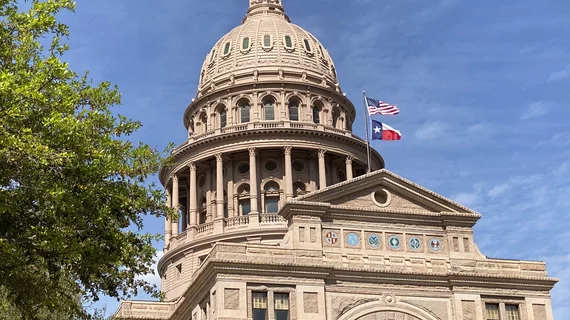Texas legislature held ground in face of scope of practice expansion bills
Approximately 140 bills related to scope of practice were presented to the Texas legislature during its last session. Of those bills, none expanded nonphysicians’ scope of practice into law. This was seen as a major win by both the American Medical Association (AMA) and the Texas Medical Association.
"The threat of scope creep has never been higher in the state of Texas," AMA member G. Ray Callas, MD, an anesthesiologist at Beaumont and president of the Texas Medical Association (TMA), said during an episode of AMA Update podcast about stopping scope creep in medicine.
When Callas took over the reins of the TMA in May, he said one of his top goals is maintaining TMA’s track record preventing scope-of-practice infringements on the practice of medicine in the Texas legislature. The TMA efforts helped stop more than 130 scope-creep bills in the 2023 legislative session. He attributed this success to the strong leadership and relationships the TMA has built with state leadership over the decades.
Preventing scope creep has been a major pillar of the AMA's advocacy efforts as well to prevent less qualified clinicians from making physician-level decisions with having gone to medical school for the rigors training physicians must undergo. However, with growing shortages of physicians, the number of bills introduced at the state and federal levels to expand practice rights for non-physician have been on the rise as a possible solution. But the AMA has maintained physicians should remain in control of medical leadership and clinical decision making and not less qualified clinicians though an increase in their scope of practice.
“We have everyone from every angle trying to be doctors without really having a license,” Callas said in the AMA Update interview.
This includes efforts to increase the scope of practice for advanced practice registered nurses, physician assistants, chiropractors, optometrists, dentists and pharmacists. Callas said even people without any medical training have anted to open med spas, start IV clinics and even perform surgery.
Callas also said the house of medicine needs to be vigilant against similar encroachments on physician autonomy by payers, hospitals, venture capitalists and other nonmedical third parties, he explained in an interview with the TMA publication Texas Medicine in April. While nonphysician practitioners play a pivotal role on any healthcare team, he added patients should not be relegated to a lower standard of care and that healthcare team need to be physician-led.
AMA helped fight Texas scope creep bills
The AMA said one of the most significant legislative efforts to expand scope of practice was Texas Senate Bill 1700, which would have allowed nurse practitioners and certified registered nurse anesthetists to practice without physician supervision.
The author of the bill, State Sen. César Blanco (D-El Paso), said the measure would result in more caregivers in rural areas where there are not enough physicians. AMA research showed regardless of scope of practice laws, nurse practitioners tend to practice in the same areas as physicians, so the bill was a moot point. Callas said there were concerns by some lawmakers he spoke with that the bill would enable lower-quality care for their constituents, which he said inspired him to continue the fight so all Texans can receive the same level of quality care.
The AMA said the TMA is one of more than 100 national, state and specialty medical associations that form the AMA Scope of Practice Partnership. The TMA has also received grants from thate partnership to retain a designated contract lobbyist focused on scope of practice issues in Texas.

